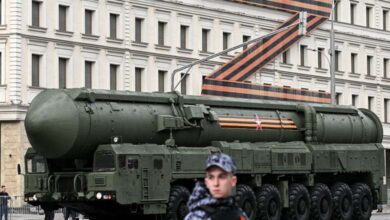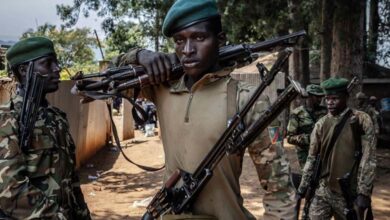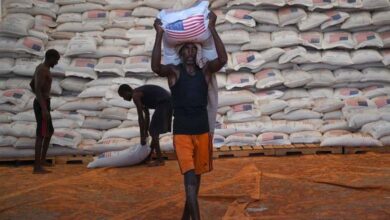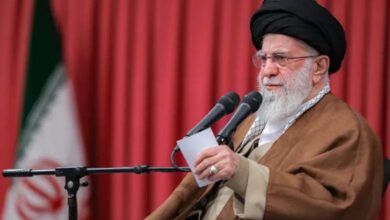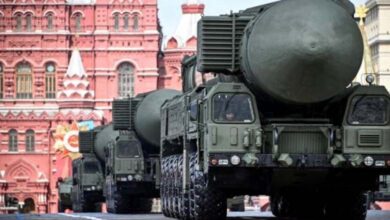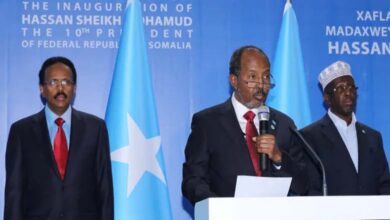Russia Accuses Dbeibah’s Government of Supporting Ukraine to Spread Chaos in the African Sahel
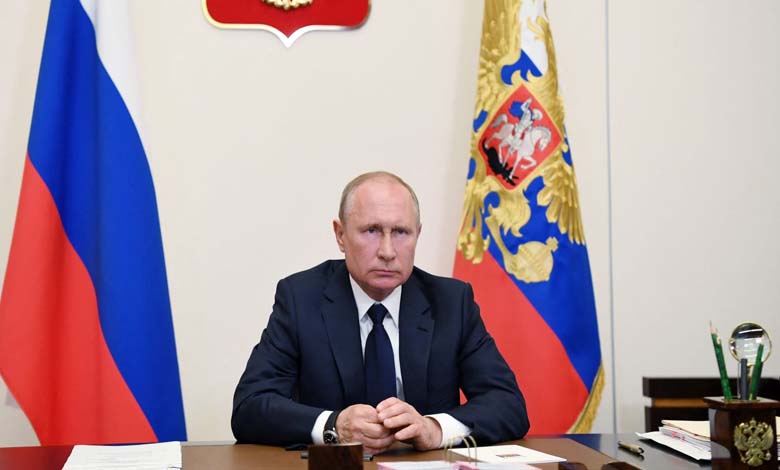
The Russian Foreign Ministry has stated that there are growing indications of Ukraine’s involvement in supporting armed groups operating in the African Sahel region, allegedly with direct backing from Libya’s Government of National Unity, led by Abdelhamid Dbeibah, and logistical assistance from British intelligence services.
-
The Thousand Cuts – Russia’s New Weapon to Wear Down Ukraine as Winter Approaches
-
A Night of Fire: Russia Strikes Ukraine with 500 Drones and 40 Missiles
Moscow has made serious accusations against Libya’s outgoing Government of National Unity, led by Abdelhamid Dbeibah, claiming that it coordinated with Kyiv to carry out military and terrorist operations in the African Sahel. Such actions, according to Moscow, could further inflame the regional struggle for influence in North and West Africa, turning Libya into an arena for geopolitical confrontation between Russia and Western countries backing Ukraine.
The accusations were made by Russian Foreign Ministry spokesperson Maria Zakharova during a press conference held in Moscow on Wednesday, as reported by Russian media outlets such as Russia Today. She stated that “the Ukrainian regime is not content with expanding the conflict within its own borders but is also exporting terrorism to other nations through cooperation with local authorities, as is the case in Libya.”
-
Massive Russian Attack on Ukraine and NATO Alert in Poland
-
Wide Advance on All Fronts: Russia Steps Up Offensive in Ukraine
Zakharova added that there are “increasing signs of Ukraine’s involvement in supporting armed groups in the African Sahel region, with direct support from the Dbeibah government and logistical facilitation from British intelligence.” She noted that this cooperation allegedly included the delivery of attack drones and the organization of field training sessions in Libya under the supervision of Ukrainian intelligence officers.
According to the Russian account, Libyan-Ukrainian coordination goes beyond technical or military assistance and extends to participation in “terrorist operations” targeting Niger and neighboring countries. Zakharova also referred to a statement issued by the Sudanese army in early October, claiming it had killed several Ukrainian mercenaries fighting alongside the Rapid Support Forces in the Darfur region — an event Moscow described as “further evidence of Kyiv’s role in fueling conflicts across the continent,” though this has not been confirmed by independent sources.
-
Putin Sets a Condition for Peace with Ukraine and Seeks to Reassure Europe
-
Ukraine Faces Headwinds: Deadly Strike in Kherson
Russia also accuses Kyiv of flooding the region with Western-supplied weapons originally intended for Ukraine. The Russian spokesperson said that “Western weapons meant for Ukraine are now in the hands of terrorist groups across several African countries, including Mali, Niger, Sudan, Somalia, and Chad,” adding that these arms are being trafficked and sold through illegal channels.
These accusations are part of the broader international struggle for influence in Africa, where military and political interventions are intensifying. Russia views the Sahel as one of its key strategic zones of expansion on the continent, particularly through groups such as Wagner, whose presence remains noticeable in countries like Mali and Burkina Faso, despite Moscow’s announcement of their reorganization under the Defense Ministry.
-
Russian Advance in Donetsk: The Battlefield Outpaces Diplomacy in Ukraine
-
Peace in Ukraine: Russia Demands Reliable Security Guarantees
Western powers, particularly France and the United States, are seeking to contain this influence. Ukraine’s alleged support for certain armed factions may be seen as a form of retaliation against Russia by opening unconventional fronts in Africa.
Malian Foreign Minister Abdoulaye Diop had previously stated that some armed groups operating in northern Mali admitted to receiving military assistance from Kyiv, denouncing what he described as “the unlawful interference of a United Nations member state in the affairs of sovereign African nations through the arming of destabilizing groups.”
-
Ukraine War: 5 Possible Scenarios for the Final Chapter
-
Ukraine War and Nuclear Warheads: What Does Putin Want from the Alaska Summit?
The Alliance of Sahel States, which includes Mali, Burkina Faso, and Niger, also threatened to file a lawsuit against Ukraine before the International Court of Justice, accusing it of training and arming groups described as “terrorist organizations.”
As of the time of publication, neither the Libyan government nor Ukrainian authorities had issued an official response to these accusations. However, concerns are mounting over escalating tensions in Libya, which remains divided by an internal struggle for legitimacy. Against a backdrop of polarization between Western and Russian influence, this situation further deepens the fragility of security and political stability across North and West Africa.


